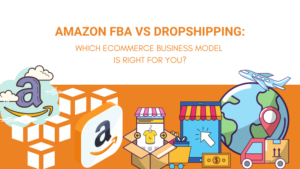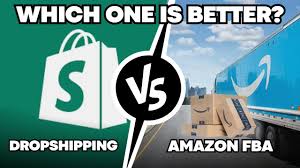What is More Profitable: Amazon FBA | Dropshipping | Affiliate Marketing
Do You want to know, what is more, profitable in the battle of Amazon FBA vs Dropshipping? Amazon FBA provides sellers with the advantages of global fulfillment networks and dependable customer support, but it does require an initial investment to get started.
Dropshipping allows you to manage the product catalog on your website, while the dropship suppliers handle order management and logistics. In affiliate marketing, you create an online store where customers can make purchases, but the actual selling and fulfillment are handled by the product sellers themselves, not by you as the affiliate marketer.
Amazon FBA vs Dropshipping: A Quick Overview
Let’s compare Amazon FBA (Fulfillment by Amazon) and dropshipping to understand their differences and which might be a better fit for your business:

1. Amazon FBA:
-
- Definition: FBA stands for Fulfillment by Amazon. It’s a service where Amazon handles storage, order fulfillment, returns, and customer service for sellers.
- How It Works:
- Sellers send their inventory to Amazon’s fulfillment centers.
- Amazon picks, packs, and ships the products to customers.
- Prime-eligible products receive the coveted Prime shipping badge.
- Amazon handles customer service and returns.
- Pros:
- Convenience: Amazon takes care of logistics, saving you time and effort.
- Prime Benefits: Prime-eligible products gain customer trust.
- Customer Service: Amazon handles inquiries and issues.
- Cons:
- Fees: FBA fees can add up, especially for large or heavy items.
- Storage Costs: Monthly storage fees apply.
- Restock Limits: Amazon imposes limits on restocking.
- Lost Inventory: Some inventory may get lost during handling.
- How It Works:
- Definition: FBA stands for Fulfillment by Amazon. It’s a service where Amazon handles storage, order fulfillment, returns, and customer service for sellers.
2. Dropshipping:
-
- Definition: Dropshipping involves listing products for sale without owning inventory. When an order is placed, you forward it to a supplier who ships directly to the customer.
- How It Works:
- You never take ownership of the products.
- Minimal upfront investment since you don’t buy inventory.
- You rely on supplier pricing and availability.
- Pros:
- Low Barrier to Entry: No need to invest in inventory upfront.
- Risk Mitigation: No stock-related risks.
- Flexibility: Easily add or remove products.
- Cons:
- Lower Margins: Intense competition often leads to lower profit margins.
- Supplier Dependency: Relies on timely and reliable suppliers.
- Limited Control: Less control over product quality and shipping times.
In Summary:
- Choose Amazon FBA if you want convenience, Prime benefits, and reliable customer service but are willing to manage fees and inventory.
- Opt for Dropshipping if you prefer a low-cost entry, flexibility, and don’t mind lower margins, but be prepared for supplier dependencies.
Pros of Amazon FBA vs Dropshipping
Pros: Amazon FBA
Easy to start: To start with Amazon FBA, create an account and list your products in the FBA inventory. You’ll then need to prepare and send your products to Amazon’s fulfillment centers. From there, Amazon takes care of shipping and handling on your behalf.
Easy Returns and Refunds Policies. Amazon’s FBA program offers a customer returns policy and support for product returns. Customers can conveniently initiate returns, and request refunds, replacements, or reimbursement through the online return center, providing a streamlined process for resolving any issues with their purchases.
FAQs: Amazon FBA vs Dropshipping

What is FBA in Amazon?
What is Dropshipping on Amazon?
Is FBA Dropshipping?
FBA (Fulfillment by Amazon) is not considered traditional dropshipping. While both involve selling products without physically handling inventory, FBA involves storing inventory in Amazon’s fulfillment centers, whereas dropshipping typically involves sourcing and shipping products directly from third-party suppliers or manufacturers.






